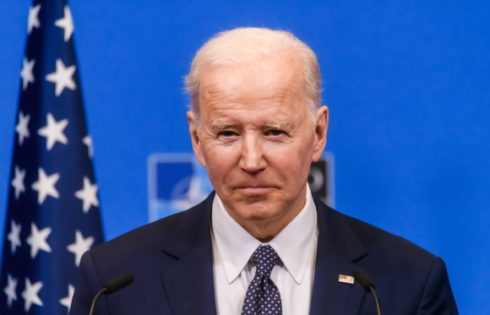
Nonwhite students blame department for not getting more nonwhites
It’s not just Brandeis University panicking about offending their students with politically incorrect themes in theater productions.
The theater department at Knox College in Illinois has canceled a planned production of “The Good Person of Szechwan,” which is about a Chinese sex worker who seeks to do “good deeds.”
According to The Knox Student, two female students of color in the theater department, Jayel Gant and Willa Coufal, were privately grousing about the production when it was announced six months ago, but they didn’t say anything until late October.
They publicly groused on social media and invited students to a forum they organized Nov. 1 to “address the racial controversy surrounding the play,” which they claim stereotypes Asian women.
The same day, Theater Prof. Neil Blackadder announced auditions had been cancelled, and the next day theater faculty announced the cancellation of the play.
The sensitive student activists might have been cool with the play if the theater department had figured how to overcome chronic disinterest in theater by students of color at Knox.
Gant pointed to some whites being cast in Muslim roles in the 2014-15 production “Mosque Alert,” and sophomore Joel Willison said “there were not enough Asian students to cast the play responsibly”:
“It’s a play that’s set in China. What Neil is doing, as far as I understand, is taking that and moving that to a Europe centralized setting. Which then makes sure all the characters could be white,” Willison said.
Blackadder stated that he believed the setting of the play to be irrelevant, and was merely updating the play to a different location.
“Though it is problematic if I’m setting it in China, but it’s not really supposed to be China. [Playwright Bertolt Brecht] is still using China as a hypothetical non real place and I can understand why that can seem disrespectful,” Blackadder said.
He dismissed “the whitewashing charge” from activists, saying whites have only been cast in nonwhite roles “in extreme circumstances.”
MORE: University cancels play accused of criticizing Black Lives Matter
Coufal defends the absent nonwhites because they “have to put in more emotional work in order to get through their classes,” but has little excuse for her and Gant’s failure to say anything until the play was in casting:
Both Gant and Coufal keep a journal of racially insensitive comments made by the theatre faculty to help validate why they feel so emotionally exhausted as people of color in the theatre department. …
“I’ll admit this got put on the backburner when we were off-campus. We did a lot of growing this summer in terms of just learning to talk about social justice in the academic sense and in terms of being put in contact with faculty from other departments,” Coufal said.
The Knox Student editorial board agreed with the activists before the play was canceled, calling it “racist” and the department “very white … like many departments at Knox”:
[I]t needs to acknowledge that they are coming from a place of privilege and prejudice. They need to listen to their students when they voice their concerns [six months late] about not only the plays the department produces, but interactions with insensitive faculty and problematic syllabi [hidden in activists’ private journals of “racially insensitive comments”].
Students of color have time and time again expressed their concerns about the department’s tendency to stereotype, tokenize and demean minority groups [no evidence given]. This treatment of students must stop and can only be stopped by the professors taking the time to actively listen to their students.
The student journalists proclaim the department must only stage “respectful, productive and progressive” plays (definitely sounds like Chinese government guidelines), and it must have “planned periods and workshops of interactive dialogues with their students.”
Then this gem of idiocy: “To try to convince students of color that a play they feel is racist is in fact not racist is silencing their opinions.”
MORE: Famous dramatist says Brandeis canceled his play in a ‘dangerous way’
Prof. Emily Anderson challenged the illiberal attitudes of students who embrace the identitarian vision of Richard Spencer from the left, writing in The Knox Student:
If I, as a person identified as white, cannot rightfully teach Edward Said’s Orientalism because I am not Palestinian and did not suffer the cultural oppression that Said suffered, I cannot explain how his theory of Orientalism undoes the arguments put forth by the white, imperialist critics who preceded him. Worse, my students can’t talk about it.
Samantha Harris at the Foundation for Individual Rights in Education warns that “student demands are having a powerful chilling effect on even the curricular decisions of university faculty” and cowing universities into “abdicating their core responsibility to educate students for fear of offending them in the process.”
It’s a downward spiral, Harris writes:
Every time faculty capitulate to student demands that unpopular or controversial speech be excised from the classroom (or, by extension, from the theater in the case of a theater department), students are emboldened to continue making such demands. …
I think universities are at something of a crossroads at this moment. Are they going to abdicate their educational responsibilities and simply become degree factories, where in exchange for $270,000 (the approximate cost of four years at Brandeis, according to the university’s website), students come to campus, tell faculty and administrators what they are and aren’t willing to learn, and leave four years later with a degree but without an education that has challenged them in any meaningful way?
Read the news article, editorial, Prof. Anderson’s response and Harris’s critique.
MORE: Dramatist groups denounce Brandeis for canceling anti-PC play
IMAGE: Cor Theatre/YouTube
Like The College Fix on Facebook / Follow us on Twitter






Please join the conversation about our stories on Facebook, Twitter, Instagram, Reddit, MeWe, Rumble, Gab, Minds and Gettr.